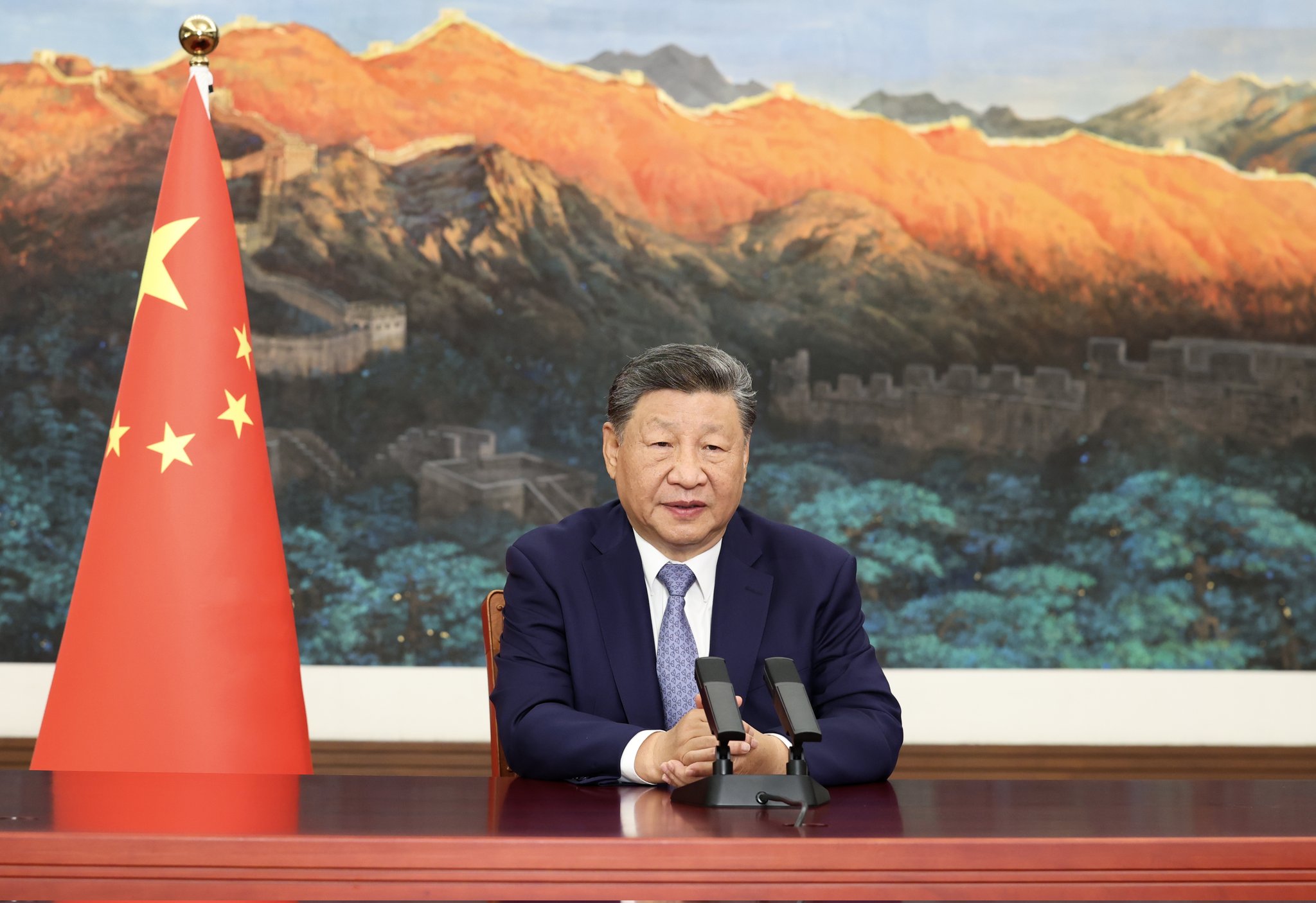Xi Jinping’s Climate Gamble: China Sets 2035 Targets Amid Global Trust Deficit
When Chinese President Xi Jinping addressed the UN Climate Summit via video on September 24, it was a carefully calibrated intervention in a climate regime under strain--where global ambition lags, multilateral trust is fraying, and the North-South divide is once again becoming a fault line.
 |
| Image Via: Mao Ning |
Ambitious Yet Calculated Targets
Xi’s new Nationally Determined Contributions (NDCs) aim to:
-
Cut net greenhouse gas emissions by 7–10% from peak levels by 2035.
-
Raise non-fossil fuel energy share to over 30%.
-
Expand wind and solar capacity to 3,600 gigawatts — six times the 2020 baseline.
-
Scale up forest stock volume to over 24 billion cubic meters.
-
Make new energy vehicles the mainstream.
-
Widen the national carbon market to include major polluters.
On paper, these are significant. In sheer scale, they reflect China’s unmatched capacity to mobilize industrial policy--especially in sectors like renewables, electric vehicles, and carbon markets. But analysts note that most of these targets reinforce or accelerate existing trajectories rather than pivot policy in new directions.
What Xi Didn’t Say Loudly—But Clearly Meant
The subtext was sharper than the tone.
Without naming the United States or any specific country, Xi criticized unnamed “nations acting against” the green transition.
It’s a veiled reference to the emerging bifurcation in global climate politics--where some developed countries are perceived as retreating from green commitments amid domestic pressures, while others push protectionist green industrial policy (such as the U.S. Inflation Reduction Act) that may distort global markets.
Xi doubled down on the principle of "common but differentiated responsibilities," a decades-old line that argues the West must bear historical accountability for climate change and pay up--both financially and technologically--to help the Global South decarbonize.
His call for “fairness and equity” wasn’t merely diplomatic nicety.
It was a pointed reminder that climate diplomacy cannot be disentangled from geopolitics, trade competition, or technological sovereignty.
Reading Between the Green Lines
China is positioning itself as the green tech factory of the world, offering cheaper solar panels, batteries, EVs, and wind turbines at scale.
By aligning its domestic industrial strategy with global climate goals, Beijing stands to gain both diplomatic legitimacy and export dominance in the global clean energy market.
But Xi’s speech also signaled a warning: China’s ability to meet its targets depends not only on internal effort, but on “a supportive and open international environment”. That’s a conditional clause, not a footnote.
It leaves space for Beijing to recalibrate--if geopolitics shift further.
The Global South Appeal—And A Soft Power Play
Perhaps the most important audience for Xi wasn’t the West, but the Global South. As climate financing from developed countries remains insufficient, Xi’s speech appeared to offer an alternative leadership vision--one in which China, not the West, steps in as the partner of choice for green transition.
His mention of ensuring the benefits of green development “reach all corners of the world” aligns with recent Chinese efforts to green the Belt and Road Initiative, which has long been criticized for financing fossil-heavy projects in developing nations.
By calling for international cooperation in green tech and condemning any moves that “widen the North-South gap,” Xi framed China’s climate posture as one of solidarity over supremacy.
A Credibility Test—Not Just for China
Xi’s remarks land at a time when climate multilateralism is under pressure. Trust in the system is low. Global emissions are still rising. And many developing nations feel left behind.
For China, the test is now not just in setting targets, but in implementing them transparently--while resisting the temptation to use climate commitments as geopolitical leverage.
For the West, especially the United States and Europe, Xi’s speech poses a different challenge: Will they match rhetoric with climate finance and political will? Or cede normative ground to China in a space where credibility is increasingly transactional?
Xi’s climate remarks were a strategic repositioning. China is staking its claim as a pillar of the post-Paris climate order. Whether the rest of the world—especially the fractured West—can match that ambition with coherence remains the open question.
